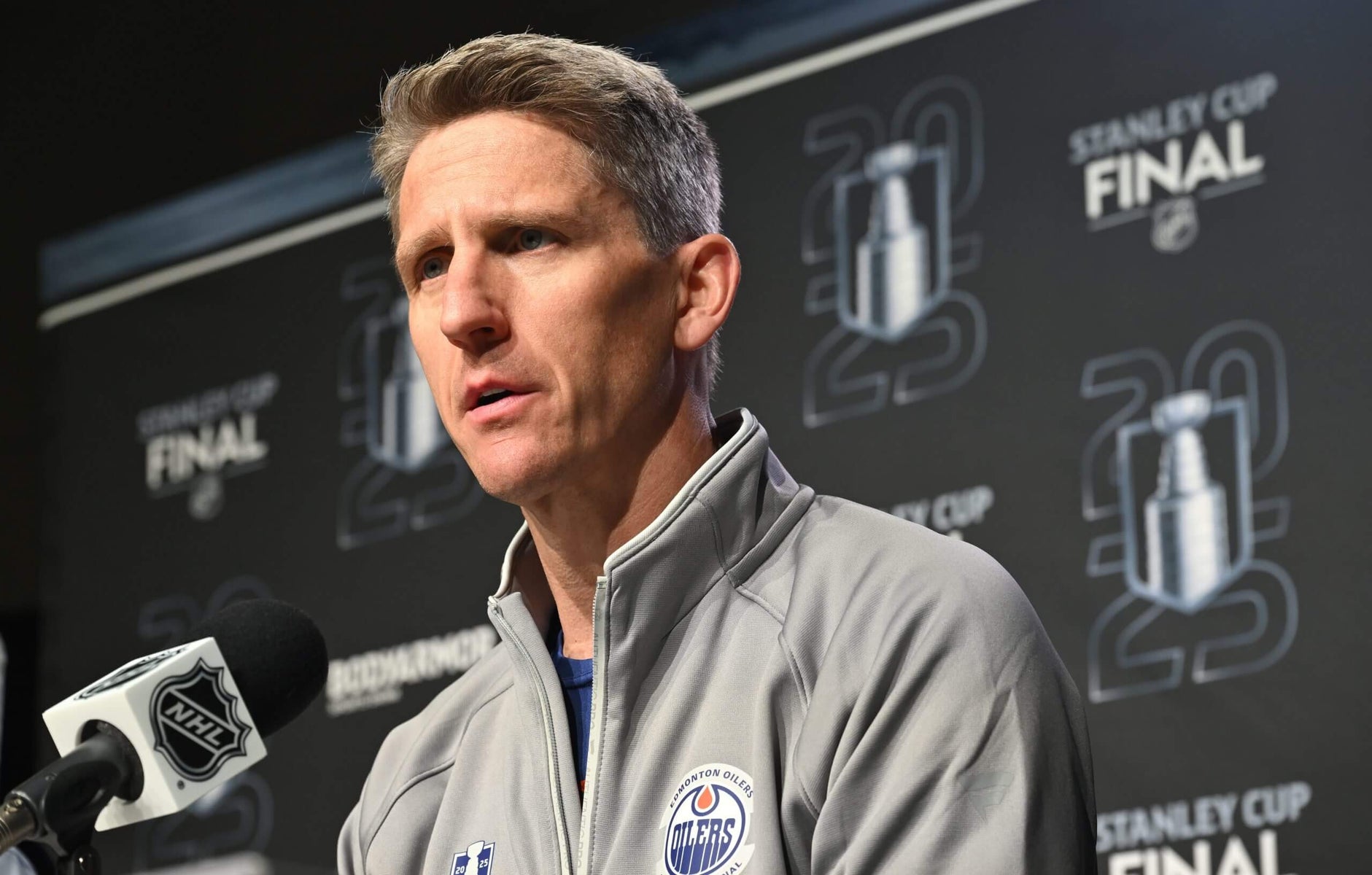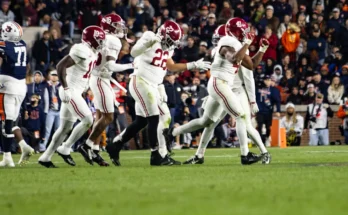How Kris Knoblauch’s acute ability to adapt improved the Edmonton Oilers
Kris Knoblauch’s impact on the Edmonton Oilers has been profound, subtle yet powerful, and most notably rooted in his acute ability to adapt. This characteristic has not only defined his coaching style but also revolutionized the way the Oilers approach the game, elevating the team’s performance, resilience, and overall identity. To fully appreciate how Knoblauch’s adaptability has improved the Oilers, it is essential to delve into the nature of his coaching philosophy, how it manifests on and off the ice, and the tangible outcomes that have resulted from this evolution.
Knoblauch came into the Oilers’ coaching staff bringing a fresh perspective shaped by his diverse experience across different levels of hockey, including the American Hockey League (AHL) and the National Hockey League (NHL). His background instilled in him a deep understanding of player development and strategic flexibility. Unlike many coaches who stick rigidly to a fixed system or style, Knoblauch’s approach emphasizes responsiveness to changing circumstances, player strengths, and evolving game dynamics. This mindset has allowed the Oilers to become a far more fluid and dynamic team, one capable of adjusting mid-game and over a series, often catching opponents off guard.
The Oilers, for a long time, were heavily reliant on the individual brilliance of star players such as Connor McDavid and Leon Draisaitl. While these players have exceptional skill sets, relying too heavily on star power can create predictability and pressure, which opponents can exploit. Knoblauch’s adaptive coaching reduced this dependency by fostering a more balanced team where role players could thrive and contribute effectively. He identified areas where the team was overly vulnerable, such as defensive coverage, transitional play, and special teams execution, and tailored practice sessions and game plans to address these gaps without undermining the strengths of the stars.
One of Knoblauch’s notable achievements with the Oilers has been his capacity to recalibrate defensive strategies while maintaining offensive creativity. Prior to his arrival, the Oilers were often criticized for defensive lapses and a lack of structure, which put undue strain on their goaltending and backchecking efforts. Knoblauch introduced a more nuanced defensive system that is flexible enough to accommodate the offensive style of the team’s top scorers. This system emphasizes situational awareness, communication, and collective responsibility. Players are encouraged to read the play and adjust positioning rather than simply sticking to rigid assignments. The result has been a reduction in high-danger scoring chances against and an improvement in puck retrieval and breakout efficiency.
Moreover, Knoblauch’s adaptive philosophy extends to in-game management and tactical decisions. He is known for his calm and composed demeanor behind the bench, which reflects his analytical approach to the game. Knoblauch studies opponents meticulously and develops game plans that can shift based on the flow of the match. This includes adjusting line matchups, changing forechecking schemes, and modifying power play and penalty kill units dynamically. His willingness to experiment and tweak strategies mid-game has allowed the Oilers to stay competitive even in situations where the initial game plan falters.
Beyond tactics and systems, Knoblauch’s adaptability has fostered a strong culture of trust and communication within the Oilers’ locker room. Players appreciate a coach who listens and adjusts according to their feedback and on-ice realities. This two-way communication has built confidence among the roster, empowering players to take ownership of their roles and contribute ideas. In a league where mental resilience is just as important as physical skill, this cultural shift has translated into greater composure under pressure and a collective belief in the team’s ability to overcome adversity.
Knoblauch’s player development focus also highlights his adaptability. He recognizes that players develop at different rates and require personalized approaches to reach their potential. Rather than forcing young players into predefined molds, he adapts his coaching style to nurture their unique skills and temperaments. This approach has accelerated the growth of emerging talents within the Oilers organization, ensuring a pipeline of capable contributors who can support the stars and maintain team competitiveness over the long term.
Statistical trends underline the tangible impact of Knoblauch’s adaptive approach. The Oilers have shown marked improvements in key metrics such as possession statistics, shot suppression, and special teams efficiency since his tenure began. These improvements are not just incremental but represent significant shifts in how the team controls games and responds to challenges. The team’s ability to sustain pressure, capitalize on opportunities, and minimize mistakes reflects a more mature and balanced style of play, which Knoblauch has cultivated through his adaptive coaching.
In playoff scenarios, where the margin for error is minimal and the intensity is exponentially higher, Knoblauch’s adaptability has proven especially valuable. His capacity to adjust game plans and motivate players for short bursts of high-stakes hockey has helped the Oilers advance deeper into the postseason. The team’s resilience in facing various tactical challenges and their ability to pivot strategies quickly under his guidance have earned them a reputation as a tough and unpredictable opponent.
Knoblauch’s adaptive traits also extend to embracing modern technology and analytics, which have become integral to contemporary hockey coaching. He leverages data and video analysis not only to scout opponents but also to provide tailored feedback to players. This integration of analytics supports his adaptive methods by allowing precise adjustments based on objective performance indicators. It has helped the Oilers identify subtle weaknesses and opportunities that traditional scouting might overlook, contributing to smarter game plans and individual player improvements.
An often overlooked aspect of Knoblauch’s adaptability is his management of the emotional and psychological aspects of the game. Hockey is an emotionally charged sport, and the ability to maintain focus, composure, and motivation across the highs and lows of a season is critical. Knoblauch’s interpersonal skills and emotional intelligence allow him to sense shifts in team morale and respond accordingly. Whether it’s calming the team after a tough loss or rallying them in moments of crisis, his flexible leadership style nurtures a balanced mental approach that sustains performance consistency.
Kris Knoblauch’s ability to adapt is not limited to responding to external factors; it also includes his own continuous learning and growth as a coach. He is known to be open-minded and proactive in seeking new ideas and methodologies. This mindset enables him to stay ahead of the curve in a constantly evolving sport, incorporating best practices from other coaches, leagues, and sports. His willingness to evolve personally ensures that his coaching remains relevant, innovative, and effective.
The Edmonton Oilers, under Knoblauch’s influence, have transitioned from a team with sporadic brilliance and structural weaknesses to one that exhibits cohesion, resilience, and strategic depth. This transformation is the direct outcome of his adaptive approach, which permeates every aspect of the team’s operation — from tactical systems and player roles to culture and mental preparedness. The Oilers have become a more well-rounded and dangerous team, capable of facing different opponents and overcoming diverse challenges without losing their identity.
In summary, Kris Knoblauch’s acute ability to adapt has been a catalyst for the Edmonton Oilers’ improvement. His flexible coaching philosophy, emphasis on balanced team play, strategic in-game adjustments, player development focus, and integration of analytics have collectively elevated the team’s performance. More than just tactics, his adaptability has nurtured a culture of trust, communication, and resilience that empowers the players and positions the Oilers for sustained success. In a league where adaptability often separates contenders from pretenders, Knoblauch’s influence has firmly placed the Oilers among the elite, proving that the power to change and evolve is at the heart of winning hockey.



